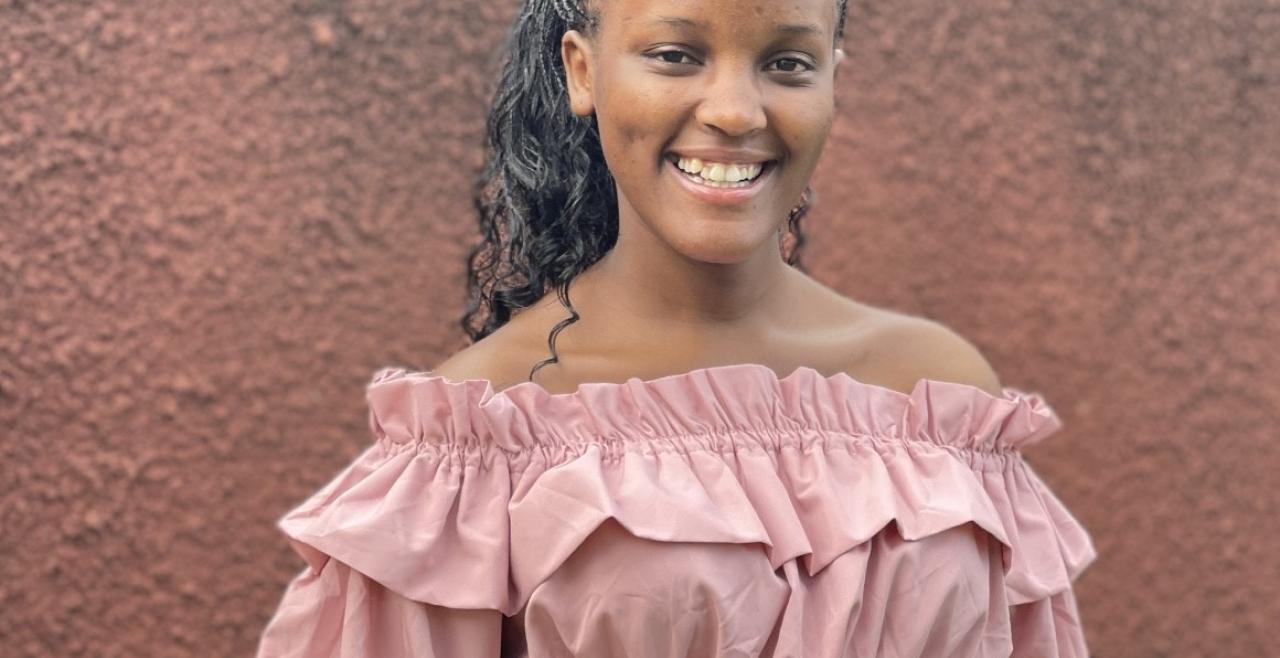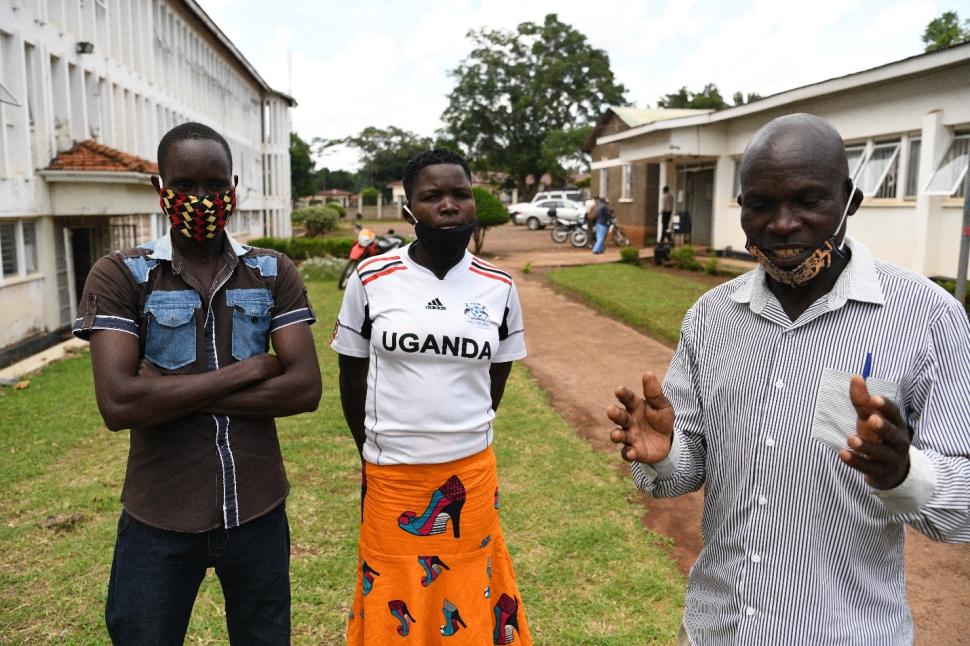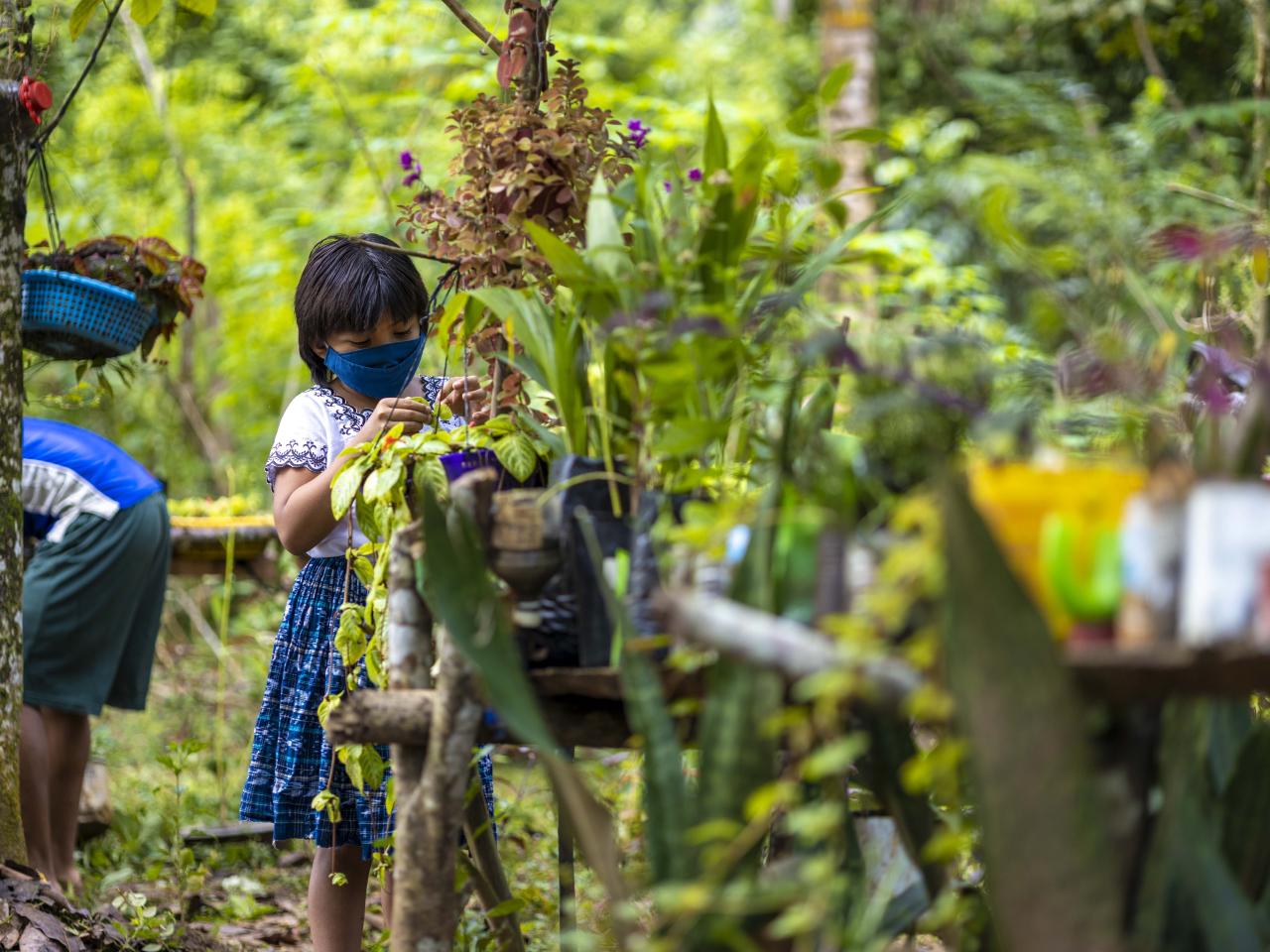No climate justice without gender equality: women leading climate action in Uganda

KAMPALA, Uganda - Women and girls are disproportionately affected by the climate crisis in numerous ways, and that includes an increased vulnerability to gender-based violence (GBV). When families have their livelihoods threatened or destroyed by unpredictable weather patterns and natural disasters, all forms of gender-based violence flourish.
The displacement and insecurity caused by natural disasters, along with crowded and insecure living conditions, force many women to live with the daily threat of harassment, rape and sexual violence. At the same time, harmful practices like child marriage become more common as parents struggling to make ends meet marry daughters off as a source of income.
“Women and girls are disproportionately affected by climate change, so they need to be equipped with skills for the future they are walking into.” - Vanessa Nakate, Rise Up Movement
During droughts, women who bear the brunt of domestic duties are forced to walk longer distances to access food, water and services, exposing them to greater risk of GBV. Further, as infrastructure such as shelters and medical clinics are destroyed, already vulnerable women and girls have fewer protections available to them. The list goes on.
Vanessae Nakate, 25, understands this dynamic well. A Ugandan climate activist and the founder of the Africa-based Rise Up Movement, she often speaks about why the climate crisis is a gender issue – and why women and girls are central to climate solutions.
“I remember learning about climate change in school, but as I read more, I observed that the impact of climate change was [already] unfolding in Uganda,” she says. “For example, the floods in the western part of the country, landslides in the East as well as the droughts.”
According to a recent Multi-Hazard Disaster Risk Reduction report, mudslides and floods in Kisoro district, western Uganda, affected two and half times more women than men.
FROM EDUCATION TO ACTION
“The climate crisis is affecting so many people in Uganda, and yet there was not much awareness. I decided I had to do something,” says Ms. Nakate.
Inspired by fellow climate activist Greta Thunberg, “I started striking every Friday, with my first strike in January 2019," she explains. “It has now been three years of activism. In these three years, I helped mobilize climate strikes in Uganda.”
Reflecting on what’s needed to advance gender equality and climate action, Ms. Nakate highlights the need to invest in educating girls and women’s empowerment.
“Women and girls are disproportionately affected by climate change, so they need to be equipped with skills for the future they are walking into,” she says. “When we educate more girls and empower more women, this is a solution that reduces already existing inequalities that so many girls and women face. This is a solution that will give climate resilience to women and girls.”
“The other thing to note is that places where girls are most likely not able to finish school, are the same places that are heavily impacted by the climate crisis. It is important that more funding is given for girls’ education and women’s empowerment – to give us all a lifeline.”
"It is important that more funding is given for girls’ education and women’s empowerment – to give us all a lifeline.” - Vanessa Nakate, 25
WOMEN AND GIRLS AT THE HEART OF CLIMATE SOLUTIONS
In Uganda, Spotlight Initiative is helping to equip women and girls with the tools they need for a more equitable and sustainable future. This includes support to LandNet, an organization that advocates for women to access, own and manage land.
Spotlight Initiative is also working to empower displaced women.
In 2020, the Spotlight Initiative provided 3,120 refugee women and youth in Uganda with opportunities to develop livelihood skills and adult literacy; join village, savings and loan associations (VSLAs) and produce fireless cooking energy baskets (used to keep food warm or finish the cooking process). The cooking baskets are income-generating, climate-friendly and limit the need to collect firewood.
In 2021, 473 people in Kampala and Tororo were trained in eco-friendly soil management and crop production. They learned pest control, post-harvest management and basic food processing. After training, the groups received farming essentials such as seeds; tools; poultry, pigs and goats; milling machines and protective gear. They were also established with leased land to farm.
Projects like these are essential not just to women’s equality and eradicating violence, but to solving the world’s climate emergency.
“We can't have climate justice without poverty eradication, we can’t have climate justice without achieving zero hunger. We can’t have climate justice without gender equality,” says Ms. Nakate.
By Eva Sibanda with additonal reporting by Davinah Nabirye


